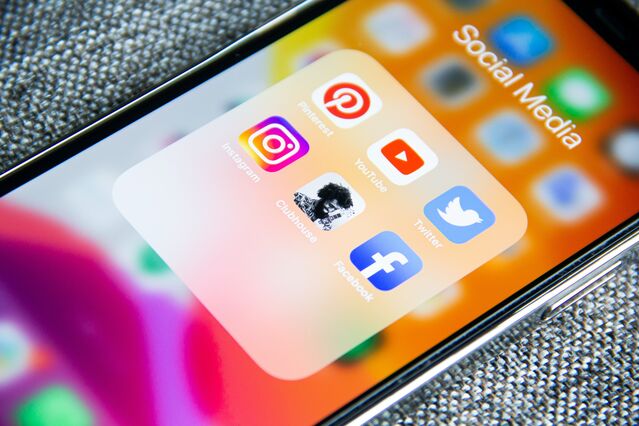Trauma
The Psychology of Clubhouse
Listening to the good, bad, and ugly.
Posted December 3, 2021 Reviewed by Ekua Hagan
Key points
- There tend to be two types of Clubhouse users: entrepreneurially driven and socially driven.
- Not everyone is who they claim to be on Clubhouse. Be aware of false claims made by individuals who don't have experience/credentials.
- Some Clubhouse hosts appear to intentionally create spaces for people to relive traumatic experiences in order to gain popularity.
- Spaces for sharing one's most personal issues on Clubhouse often don't offer safeguards to help the person post-discussion.

In January of this year, I joined Clubhouse. I wasn't sure what to expect, given that I have never been on an audio social platform. However, since then, I have learned a lot, particularly the psychological effects of connecting with strangers via voice.
Party Line
When I first joined Clubhouse, I felt anxiety because it had been several months since I've met someone new since the lockdown began. As an experienced public speaker, I am used to being in front of large audiences, but for some reason, when I started to use the app, I found myself nervous and tongue-tied. In retrospect, I think it had to do more with meeting new people than actually speaking publicly. The best way I could describe it is like joining a 1-900-Party-Line where random people joined a telephone line and talked about any topic.
It quickly became addicting, and I found myself joining different rooms throughout all hours of the day and night. As a result, I had access to people I would have never met, including Amy Cuddy, Adam Grant, and a few others, which is great because I could ask them questions directly. I also noticed two types of room hosts on the platform: entrepreneurially driven and socially driven.
Beware of False Prophets
As an entrepreneur, I understand the continuous demand on bringing in business; however, what I found on the platform was a mix of legit business owners and scammers. Unfortunately, I noticed more scammers than legit business owners.
It ranged from self-proclaimed millionaires to imposter syndrome gurus selling their online courses or coaching services. Unfortunately, not everyone takes the time to validate a person's credentials and, as a result, spends money they will never get back.
Some hosts would have 24-hour, 7-days-a-week rooms to collect follows. Gaming the system paid off because their rooms held a higher priority over rooms with a smaller following. While it may not sound like a big deal, and some would say don't hate the player, hate the game, it makes one question the equity of voices heard.
Many people complained that there weren't many black and brown voices on the large stages. Since then, things may have changed, but I can't confirm as I've disconnected from the app.
Trauma Dumping
When it came to socially driven rooms, there was a mix of rooms ranging from light-hearted to highly intense. For example, some rooms focused on playing music, discovering new cultures, and learning new languages on the light-hearted side.
Whereas the more intense rooms concentrated on "who shut the room," "who said what about person XYZ," to "let's talk about the trauma that happened during your childhood." The first two were more about immature behavior that hurts feelings, but it doesn't necessarily surface psychological trauma.
The last one was a big issue for me because there were many trauma dumping rooms. I found that hosts intentionally created spaces for people to relive traumatic experiences to gain popularity. That's a significant issue, and it's a bigger issue not to have any safeguards to help the person after leaving the stage.
I also noticed that people confused life coaching with either therapy or psychiatry; as a result, people would share their most personal issues on stage. Of course, some may disagree, but the onus is on the host to ensure the speaker who shared their situation will be ok once they hop off the stage.
Furthermore, if a host hears this happen, they should take it offline because a group of random strangers is listening to this person's issue. I say this because the host creates the space for this discussion.
War on Talent
It's hard to believe, but there are several clubs on Clubhouse that focus on bridging recruiters and hiring managers with prospective job seekers. So if you're on the market for a new job, this may be one way to get your name out there quickly; therefore, your Clubhouse bio and your elevator pitch must be consistent.
Not only are you able to hear directly from the recruiters and hiring managers about their current job openings, but they can also hear from you what you do. There have been a few instances where hiring managers open up random rooms for a particular type of resource. It has ranged from needing a virtual assistant to project managers to marketing managers.
Moving Forward
It's hard to believe that 12 months ago, life was at a standstill, and Clubhouse helped bring people together who otherwise would not have met. I found value in making personal connections and learning new things along the way; however, when it came to hearing human behavior at its finest, the platform allows you to listen to the good, the bad, and the ugly.
From a creator perspective, I found that adding content on audio is best served as a podcast than on an app where you can't see stats or have a wider distribution channel; however, as a content consumer, the app is a great way to make new connections.
If you're using the app or consider using the app, my recommendation is always to confirm that the person claiming to be an expert is an expert and that whatever you say on the platform is never private.




